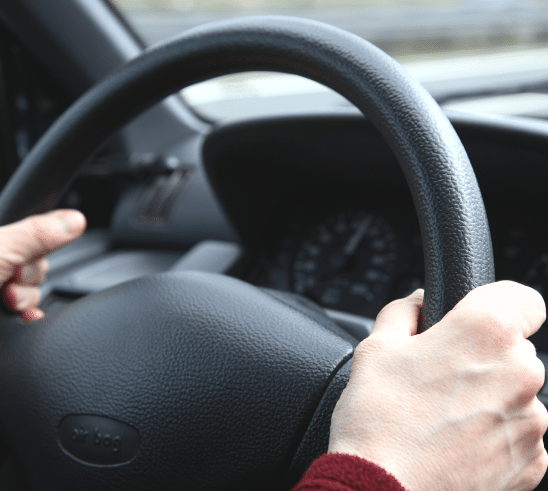California has some of the most stringent DUI laws in the country. If you are facing DUI of drugs (DUID) charges, the consequences of a conviction can be just as serious as in alcohol-based cases. Contact our law firm to speak with a DUI attorney today.
Many Californians do not realize that it is illegal to drive while under the influence of drugs, even when the drugs have been prescribed to you by a doctor. Facing DUI of drugs (DUID) charges under VC 23152(f) can be a frightening and stressful experience, especially if this is your first encounter with the criminal justice system.
You are probably unaware of your legal options and do not know what to do next. Fortunately, you do not have to navigate the criminal justice system alone and, given the serious nature of the charges, you do not want to take chances with your future. At Gressley & Donaldson, we understand the gravity of your situation and are committed to fighting for the best possible outcome in your case.
When working with our drug DUI attorney, you can expect to receive the personal attention you deserve and the guidance you need during this challenging time. We will advocate for you throughout the entire process and advise you on the most efficient defense strategy in your case.
Are you facing DUID charges? Don’t make the mistake of trying to navigate your legal options alone—contact the drug DUI lawyers at Gressley & Donaldson to discuss your legal options today.
California Law for DUI of Drugs (DUID) VC 23152(f)
California Vehicle Code VC 23152(f) prohibits operating a motor vehicle under the influence of legal and illegal drugs. This offense is known as DUI of drugs or DUID. For this specific section of the Vehicle Code, it does not matter what type of drug was consumed. As long as a drug impairs a person’s ability to drive safely, driving under the influence of this drug is considered a violation of VC 23152(f), even if the person has a valid prescription from a licensed physician.
The prosecution has the burden to prove two elements beyond a reasonable doubt to convict someone of DUI of drugs in California:
- The defendant was operating a motor vehicle; and
- The defendant was under the influence of drugs when operating the vehicle.
The term “under the influence” means that a person’s ability to drive safely was impaired by the consumption of a drug. In most cases, the prosecution has to rely on the arresting police officer’s testimony to prove the above-mentioned elements. At Gressley & Donaldson, we help people facing DUID charges secure a favorable resolution of their case by challenging the evidence presented against them and creating reasonable doubt in the jury’s minds.
Example. John is driving when a police officer sees him weaving in and out of lanes and pulls him over. The officer suspects that John may be impaired by a drug and requests the assistance of a drug recognition expert (DRE). The DRE comes to the scene and conducts a specialized evaluation to determine whether the driver is under the influence of drugs. The evaluation shows that John in fact has drugs in their system. John could be charged with DUI of drugs under VC 23152(f)
What Drugs Are Covered by VC 23152(f)?
All drugs that impair a person’s ability to drive safely are covered by VC 23152(f). This includes illegal drugs and controlled substances such as:
- Cocaine
- LSD
- Heroin
- Ecstasy
- Methamphetamine (meth)
For the purposes of VC 23152(f), there is no difference between illegal drugs and medications you get at a pharmacy or are prescribed by your physician. That is why prescription drugs and over-the-counter medication are also covered by the statute, including:
- Oxycodone
- Vicodin
- Morphine
- Oxycontin
- Ambien
- Benzodiazepine
- Cold medicine
- Opioid pain relievers
- Sleeping pills
- Allergy medicine
- Antidepressants
Although cannabis is legal in the State of California for both medicinal and recreational use, California law prohibits driving under the influence of marijuana. Even if you are legally allowed to consume marijuana, it is a crime to get behind the wheel while impaired by any cannabis products.
Does California Have a Legal Blood Limit for DUID?
No. VC 23152(f) makes it illegal to operate a motor vehicle with any amount of drugs in your system as long as it impairs your driving abilities. The same cannot be said about alcohol-based DUIs in California as the law sets a legal blood alcohol concentration (BAC) threshold. According to the state’s Department of Motor Vehicles (DMV), drivers over the age of 21 cannot legally drive a motor vehicle with a BAC of .08% or higher.
In DUID cases, there is no such thing as the “legal limit” as VC 23152(f) does not specify a particular concentration of drugs in a suspect’s blood or urine. In other words, it is legal to operate a motor vehicle with drugs in your system as long as your driving abilities are not affected.
- Note: Some other states prohibit individuals from driving when the concentration of a drug is at or above a certain level even if the presence of the drug in their system does not impair their ability to drive safely.

When Can Police Arrest You for DUID?
Because VC 23152(f) does not set a standard legal limit for drug concentration, police officers have broad discretion when it comes to making arrests for DUI of drugs. Under the law, the police can arrest an individual if they suspect them of being under the influence of drugs.
When a police officer suspects drugged driving, they will typically request the assistance of a drug recognition expert (DRE). DREs are officers who receive specialized training to recognize the signs of intoxication by drugs. An investigation conducted by a DRE typically involves:
- Roadside breathalyzer test
- Field sobriety tests (FSTs)
- Observing visual signs of drug impairment
- Interviewing a suspect
If you get arrested on suspicion of driving under the influence of drugs, the police will require you to submit to a blood and/or urine test to detect the concentration of drugs, if any, in your system. California has an “implied consent” law, which makes it mandatory for all drivers to submit to chemical testing after an arrest. DUI test refusal VC 23612 in violation of the state’s implied consent law carries an additional penalty.

Legal Defenses to DUI of Drugs (DUID) VC 23152(f)
At Gressley & Donaldson, we have successfully defended countless clients accused of DUI and DUID in California. We use a variety of criminal defense strategies to help clients fight DUI drug charges, including the following:
- You were not driving at the time you were intoxicated by drugs (e.g., you were sleeping in your vehicle and had no intention to drive).
- You were not under the influence of drugs and could drive safely.
- The traces of drugs in your system are so insignificant they could not have reasonably affected your driving abilities.
- The fact that drug levels discovered from a blood test cannot always indicate impairment.
- The chemical test that showed the presence of drugs in your system was not accurate (e.g., due to sample contamination or improper administration of the test).
- The law enforcement officers did not have probable cause to stop you in the first place (e.g., you were driving safely and did not violate any traffic rules to warrant a traffic stop).
This is a non-exhaustive list of possible defense strategies in DUI cases. Everyone’s situation is unique, which is why you might want to speak with a lawyer to develop a defense strategy tailored to the specific circumstances of your case. Contact our team at Gressley & Donaldson to explore your defense options.
What Are the Penalties for a DUID Conviction?
In most cases, driving under the influence of drugs is a misdemeanor in the State of California. A misdemeanor DUID conviction carries the following penalties:
- A fine of up to $1,000
- Between three and five years of probation or up to six months in county jail
- A suspension of your driver’s license
- Mandatory DUI school
- Community service
The court is unlikely to impose a jail sentence if this is your first DUID offense and there are no aggravating circumstances, such as causing serious injuries to other persons. A DUID can be prosecuted as a felony if any of the following is true:
- You have at least three misdemeanor DUI convictions on your record; or
- You have at least one felony DUI conviction on your record.
A fourth-time DUID offense is a “wobbler,” which means, depending on the circumstances involved, the crime could be prosecuted as a misdemeanor or felony. If anyone suffers a serious injury as a result of your DUI of drugs, you could face a felony DUI offense under VC 23153.
DUI of Drugs (DUID) VC 23152(f) Frequently Asked Questions
A drug DUI occurs when a driver operates a vehicle under the influence of any drug, including illicit drugs, prescription medications, or over-the-counter substances that can impair driving.
There are no per se limits on any drug (including marijuana) in a driver’s blood. This is much different than alcohol, where there is a per se limit of .08% by weight of alcohol in a person’s blood. Because of that, drug DUI investigations should follow specific NHTSA requirements to determine if a driver is impaired for purposes of driving by the drug.
Penalties include fines, license suspension, mandatory DUI programs, probation, and potential jail time, increasing with repeat offenses or causing injury.
Prosecutors use field sobriety tests, Drug Recognition Expert (DRE) evaluations, chemical tests (blood or urine), officer observations, and sometimes witness statements.
Driving under the influence of prescription drugs that impair your ability to drive can result in a DUI, even if taken as prescribed, under Vehicle Code 23152(f).
Penalties for marijuana DUI include fines, license suspension, DUI education, and possible jail time. Penalties increase for repeat offenses or accidents.
Officers evaluate coordination, balance, eye movements, and behavior to determine impairment. DRE-certified officers should conduct specialized assessments for drug impairment.
Chemical tests detect the presence and concentration of drugs in the bloodstream or urine, which serves as evidence of drug use for drug DUI charges.
Defenses include challenging the legality of the stop, test accuracy, failing to follow proper investigative methods, improper officer evaluation, challenging searches & seizures, or questioning observed impairment.
A first offense can result in fines, probation, DUI school, and license suspension, with possible jail time depending on circumstances. Drug DUIs are harder to prove that alcohol DUIs, so often reduced charges can be obtained from experienced DUI attorneys.
Yes. Drivers impaired by both drugs and alcohol may face charges and penalties under VC 23152(g).
Yes. OTC medicines (e.g., NyQuil or Benadryl) that can impair driving can result in DUI charges.
Yes. Penalties increase with prior convictions, including longer license suspensions, higher fines, mandatory jail time, and extended DUI programs.
Yes. A DUI conviction can impact commercial driver licenses, job eligibility, professional licenses, and insurance premiums.
An attorney can challenge evidence, represent you in court and DMV hearings, negotiate plea deals, and work to reduce or dismiss DUI charges.
Gressley & Donaldson: Skilled DUI of Drugs (DUID) Defense Lawyers
At Gressley & Donaldson, we understand that being charged with DUID can be a terrifying and nerve-wracking experience. If this sounds like your situation, we are here to help you secure the best possible outcome. We will fiercely advocate for your rights and interests to keep you out of jail, help you retain your driver’s license, and avoid or minimize other consequences. Schedule a case evaluation with our team to discuss how we may be able to assist you.


